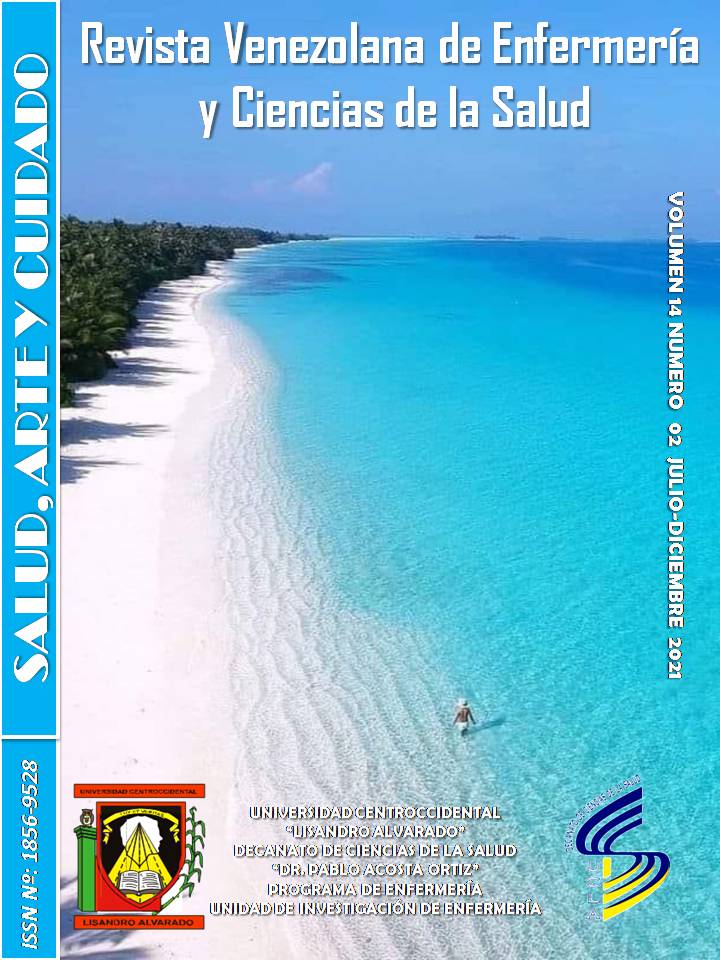Conceptual maps, significant learning and creativity from the clinical history.
DOI:
https://doi.org/10.5281/zenodo.7019092Keywords:
conceptual maps, significant learning, creativity, clinical historyAbstract
Higher education aims at the comprehensive training of future professionals, teachers and students are involved in this process (Valero, 2021). For this process to be successful, both must resort to tools such as graphic organizers, among others, concept maps. Novak (1990), defines them as a schematic resource that graphically helps to represent conceptual meanings included in a structure of propositions, which serves as a tool to organize and represent knowledge and for learning. Various researchers have studied the same; Dominguez and Vega (2020) point out that concept maps favor meaningful learning, because they work as a scaffold that allows structuring and organizing information, concepts, and ideas in the long-term memory of students. The purpose of this documentary review was to argue the importance of concept maps as a creative tool to achieve significant learning, based on clinical history, referring to the case of students and teachers of the Medical Clinical Chair I, of the Medicine Program, of the Deanship of Health Sciences, of the Universidad Centroccidental ¨Lisandro Alvarado” of Barquisimeto, Venezuela. A documentary review and critical analysis of the subject was carried out. It is concluded that the elaboration of the conceptual maps would allow to create a shared representation of the patient's illness, to identify the relations between the symptoms, to reveal a diagnosis, and under the accompaniment of the teacher, to train, creatively and significantly, the student to plan treatment plans. study and treatment, and increase learning by relating old and new knowledge
Downloads
References
Valero, V. Actitud de los estudiantes universitarios ante las actividades extracurriculares. PURIQ, 3(1), 125–141. https://doi.org/10.37073/puriq.3.1.123 Touriñán López, José Manuel, Construyendo educación de calidad desde la pedagogía. Sophia, Colección de Filosofía de la Educación. 2022; (32):41. Recuperado de https://www.redalyc.org/articulo.
Novak, J. D. Mapeo conceptual: una herramienta útil para la educación científica. Revista de Investigación En La Enseñanza de Las Ciencias, 27(10), 937. Disponible en: https://doi. org/https://psycnet.apa.org. 1990.
Dominguez, L. C., y Vega, N. V. Efectos del mapa conceptual sobre la síntesis de información en un ambiente de aprendizaje interactivo: Un estudio preexperimental. Educación Médica, 21(3), 193. https://doi.org/10.1016/j. edumed.2018.08.002 . 2020.
Touriñán López, J. M. Construyendo educación de calidad desde la pedagogía. Sophia, Colección de Filosofía de la Educación, (32), 41. 2022.
Torres Pérez, Yudi, Derrick Henry, Jorge A., Pérez González, Yurisays, Sosa de la Cruz, Carmen, Falcón Torres, Lourdes Cristina, Sociedad del Conocimiento y Universidad. Revista Información Científica. 2011;71(3): Recuperado de: https://www.redalyc.org/articulo.
Canónico y Rondón. Teorías del aprendizaje y su relación con las Teorías de la Instrucción. (2005). (Folleto). Barquisimeto.
Garcia-Franco V y otros. Los mapas conceptuales como instrumentos útiles en el proceso enseñanza-aprendizaje. Medisur [revista en Internet]. Disponible en: http://www.medisur.sld.cu/index.php/medisur/article/view/4769. 2020.
Cardenas- Contreras G. El mapa de concepto como estrategia pedagógica en el aprendizaje de conceptos disciplinares de economía. Revista Tecnológica Educativa Docentes 2.0, 11(1), 74-79. https://doi.org/10.37843/rted.v11i1.194
Gortari, Eli de. El método de las ciencias, nociones elementales. México. Grijalbo. 1979.
Arellano y Santoyo. Investigar con Mapas Conceptuales. Madrid: NARCEA, S.A. DE EDICIONES. 2009.
Novak, J. y Cañas, A. La universalidad y ubicuidad de los mapas conceptuales. Cuarto Congreso Internacional sobre Mapas Conceptuales. Disponible en: http://cmc.ihmc.us/ 2010.
Sánchez de Varela, F. et al. Universidad Pedagógica Experimental Libertador. Instituto Pedagógico “Luis Beltrán Prieto Figueroa”. Mapas de conceptos. Barquisimeto. 1998.
González, F. El mapa conceptual y el diagrama UVE. Recursos para la enseñanza superior en el siglo XXI. España: NARCEA, S.A. 2008.
Gowin, D. Educating. New York: Cornell University Press. 1981.
Ontoria, A. Mapas conceptuales. Una técnica para aprender. Madrid: Narcea. 2006.
Soriano, M. Creatividad. Educare. 6. (1), 140. 2002.
Castro, Henry, Ortega, Javiera, Villarroel, Javier, Contreras, Carla. Determinación de pensamiento creativo en estudiantes de medicina de una universidad chilena. Rev Med Chile 2019; 147: 372.
De La Torre, S. Manual de la creatividad. España: Editorial Vicens Vives. 2000.
Suárez, R. La Educación. México. Editorial Trillas S.A. 2004.
Méndez de G., A. Construcción social de realidades educativas fundamentadas en innovación y calidad. Educare. 10 (1), 169. 2006.
Mazzei, E. Semiotecnia y Fisiopatología. Buenos Aires: El Ateneo. 1978.
Orellana, R. Mapas conceptuales y aprendizaje significativo. Candidus. 3 (9), 31. 2006.
Amaro, V. Universidad Pedagógica Experimental Libertador. IPB. Sub-Programa de Capacitación Pedagógica para profesionales no Docentes. Estrategias de Enseñanza y Tecnología de Información y la Comunicación. Barquisimeto. 2005.
Ausubel y otros. Psicología Educativa: Un punto de vista cognoscitivo. 2° Ed. México: TRILLAS. 1983.
Published
How to Cite
Issue
Section

This work is licensed under a Creative Commons Attribution-NonCommercial-ShareAlike 4.0 International License.
Derechos del/de autor/es a partir del año de publicación
Esta obra está bajo la licencia:
Creative Commons Reconocimiento-NoComercial-CompartirIgual 4.0 Internacional (CC BY-NC-SA 4.0)
Las opiniones expresadas por los autores no necesariamente reflejan la postura del editor de la publicación ni de la UCLA. Se autoriza la reproducción total o parcial de los textos aquí publicados, siempre y cuando se cite la fuente completa y la dirección electrónica de esta revista. Los autores(as) tienen el derecho de utilizar sus artículos para cualquier propósito siempre y cuando se realice sin fines de lucro. Los autores(as) pueden publicar en internet o cualquier otro medio la versión final aprobada de su trabajo, luego que esta ha sido publicada en esta revista.







